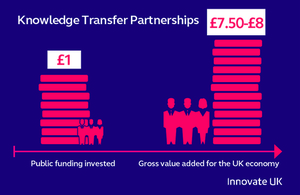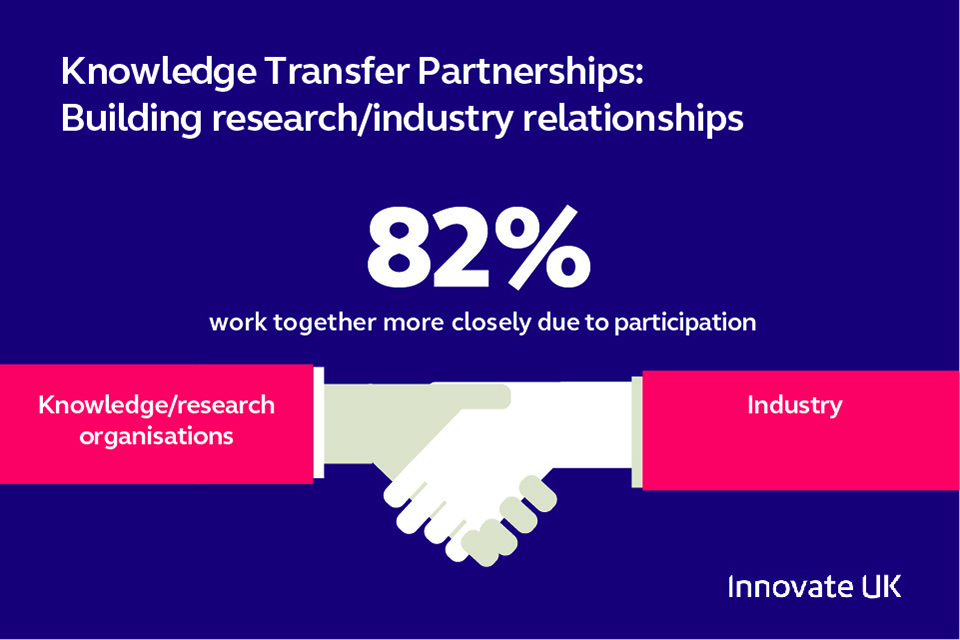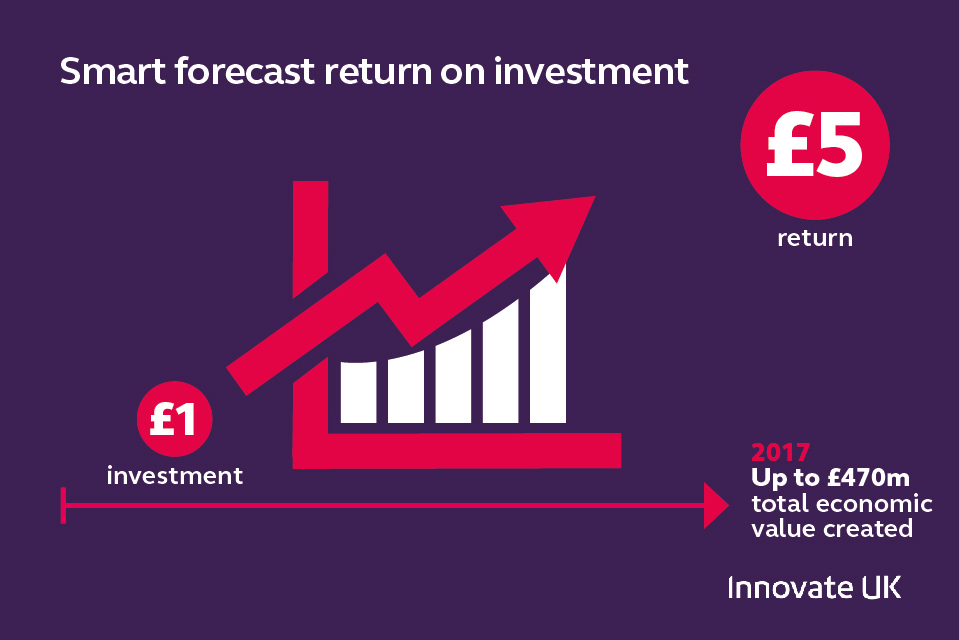Reports highlight economic impact of business innovation funding
Independent reports on Knowledge Transfer Partnership and Smart highlight significant impacts from these Innovate UK funding programmes.

Every £1 invested by KTP sponsors has returned £7 to £8.50 to the UK economy
Two independent reports commissioned by Innovate UK have highlighted the benefits to the UK economy of funding support for innovative business projects.
A study by Warwick Economics & Development into the Knowledge Transfer Partnership (KTP) programme found that every £1 of grant funding invested by sponsors is delivering a return of £7.50 to £8 to the UK economy.
KTP is managed by Innovate UK and aims to help businesses improve competitiveness and productivity through a partnership with a university or research institution and the employment of a recent graduate with relevant experience – known as the associate.
More than 90% of associates said KTP had a positive impact on their career and personal development. More than a third said that impact had been transformational.

KTP partnership infographic
More than 80% of knowledge base partners said KTP had led to better relationships with industry and that improvements to teaching resources and staff development had exceeded expectations. They also reported the benefits of KTP were felt outside the direct participants.
Smart has positive impact on business
The second study by SQW Ltd, working with Cambridge Econometrics and BMG Research, found that Smart funding since 2011 had had a positive impact on business R&D, expenditure, employment, turnover and propensity to export.
Smart provides funding of up to £250,000 to support small and medium-sized businesses working on innovative R&D projects that could lead to new products or services.

Smart RoI forecast infographic
Businesses that responded to the authors’ survey forecast a return by 2017 of £5 for every £1 invested in Smart funding in 2011 to 2012 and 2012 to 2013.
The report added that the true extent of the impact of Smart funding since 2011 was not likely to be seen until 2017. It also found that the processes behind Smart funding were broadly effective and suggested some areas for improvement.
The authors will continue their work and report back at a later date on the longer term impacts of Smart.

Smart jobs inforgraphic